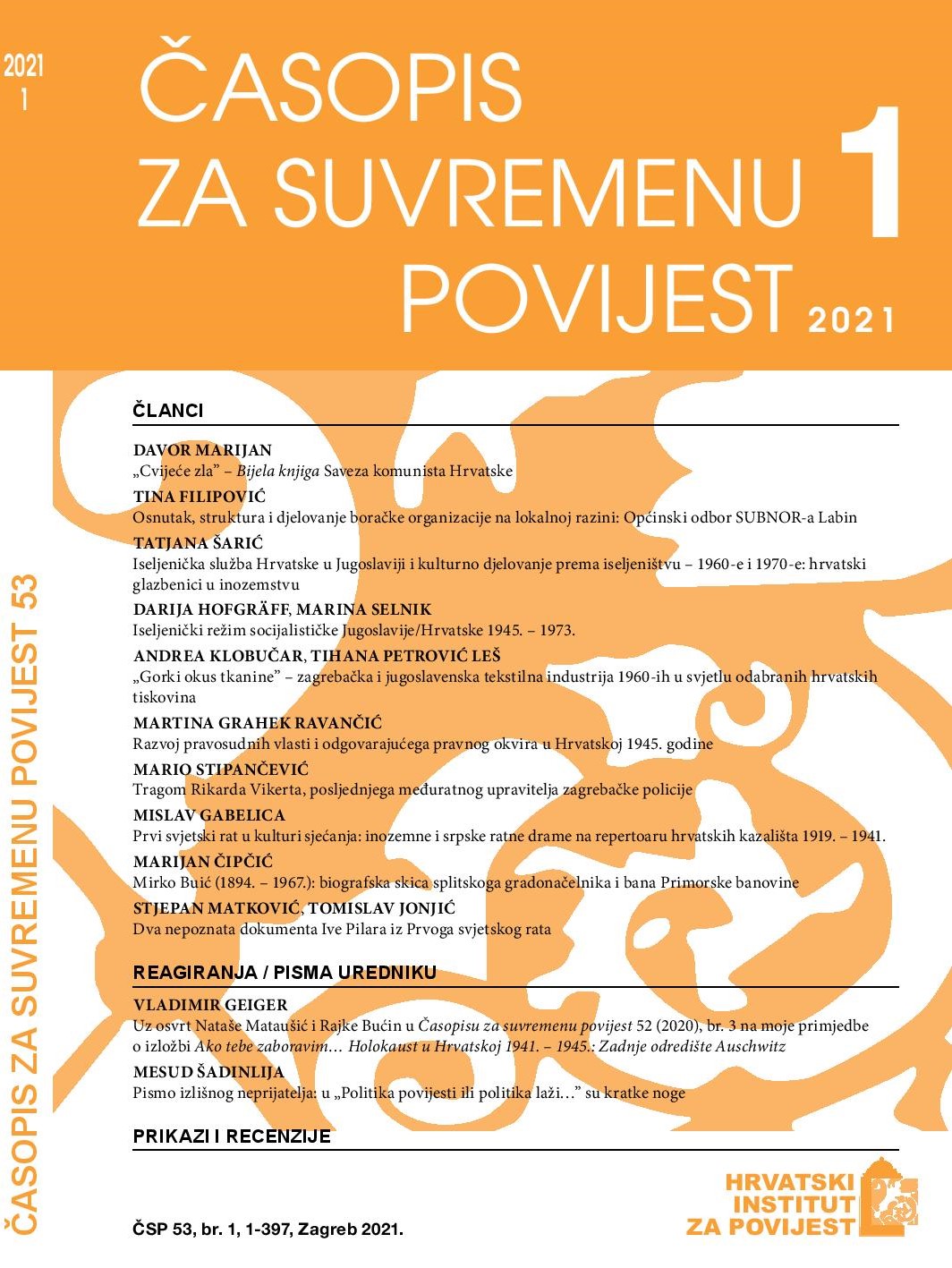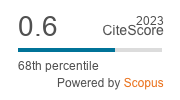In the Footsteps of Rikad Vikert, the Last Interwar Chief of the Zagreb Police
DOI:
https://doi.org/10.22586/csp.v53i1.11881Keywords:
Rikard Vikert; biography; police; Kingdom of SHS/Yugoslavia; Independent State of CroatiaAbstract
Rikard Vikert (1889–1941) was the last chief of the Zagreb police before the beginning of World War II in this region. He remained at this post only for a short time. Despite this, immediately after the establishment of the Independent State of Croatia, he was declared one of the most wanted persons of the new regime. The reasons for this were related to his earlier policing activities, especially his performance as the head of the Sarajevo police (1935–1940), when he was responsible for the cruel treatment of political dissidents of the old Yugoslav regime.
He was trained to perform police duties as early as the time of the Austro-Hungarian Monarchy, acting as part of the armed forces, i.e. the gendarmerie, immediately after the establishment of the Kingdom of Serbs, Croats and Slovenes. He was well-accepted in centralist circles because he voluntarily left the Austro-Hungarian army and joined the Serbian army at the very beginning of the Great War. In this way, he gained the trust of Belgrade’s political elites, which found him suitable for larger police tasks, due to the fact he was an educated officer. From 1923, he was employed by the Ministry of the Interior, and climbed the administrative ladder within the police apparatus. He experienced a professional zenith when he became the chief of the Zagreb police, where he tried to oppose the increasingly strong attempts of members of the Ustasha and communist movements to break the old order. After the entry of German forces into Yugoslavia and the proclamation of the puppet Independent State of Croatia, he and his associates fled Zagreb, trying to find refuge in Sarajevo. There, at the end of April 1941, he committed suicide while resisting an attempt of the Ustasha police to apprehend him.
Downloads
Published
How to Cite
Issue
Section
License
Copyright (c) 2021 authors and journal

This work is licensed under a Creative Commons Attribution-NonCommercial 4.0 International License.
Copyright holders are the publisher Croatian Institute of History and the authors. Journal of Contemporary History is an Open Access journal. Users are allowed to read, download, copy, redistribute, print, search and link to material, and alter, transform, or build upon the material, or use them for any other lawful purpose as long as they attribute the source in an appropriate manner according to the Creative Commons licence CC BY-NC. The papers published in Journal of Contemporary History can be deposited and self-archived in the institutional and thematic repositories providing the link to the journal's web pages and HRČAK. Journal does not charge article processing charges (APC). The editors assume no responsibility for statements of fact or opinion made by contributors.




